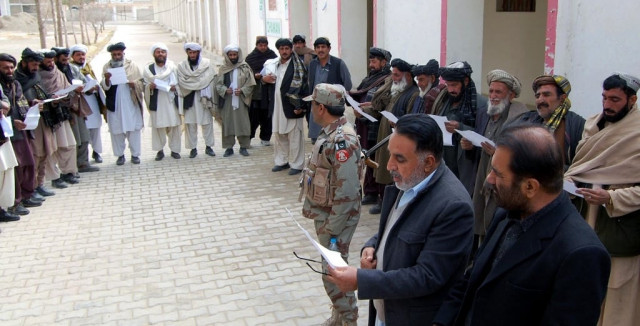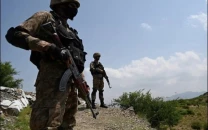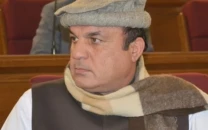A welcome change in Balochistan
LB polls in Blaochistan demonstrate that democracy, even against the odds, can be seen to work for the good of all

Local elections remain far off for most in Pakistan, but Balochistan has shown the way. PHOTO: INP

One outcome of this successful exercise in local democracy is that Quetta has a new mayor, Dr Kaleemullah Kakar, who represents the Watan Dost Panel, which gained 54 out of the available 84 votes. Dr Kakar runs a hospital in Quetta and identified the city’s traffic problems and law and order as matters that were high on his agenda. The runner-up in the election was the PML-N candidate, who secured the position of deputy mayor. The picture that emerges from the results across the province is one of political diversity in terms of both participation and outcomes. That diversity is both welcome and healthy, the more so as the elections were reportedly held without a single incident of violence anywhere in the province. Thus far, there have been no complaints of rigging or other irregularities. It is extremely rare, perhaps unprecedented, for any electoral process to pass off in Pakistan without somebody crying ‘foul’ somewhere along the way. Balochistan, a province that has more than its fair share of troubles and violence, has been able to demonstrate conclusively that local bodies elections can be held, that such elections can be truly representative of the political grass roots and that democracy, even against the odds, can be seen to work for the good of all. There is no reason why all of the other provinces should not follow the Balochistan example, but there is a strong doubt that they will. Local elections remain far off for most in Pakistan, but Balochistan has shown the way.
Published in The Express Tribune, January 30th, 2015.
Like Opinion & Editorial on Facebook, follow @ETOpEd on Twitter to receive all updates on all our daily pieces.



















COMMENTS
Comments are moderated and generally will be posted if they are on-topic and not abusive.
For more information, please see our Comments FAQ